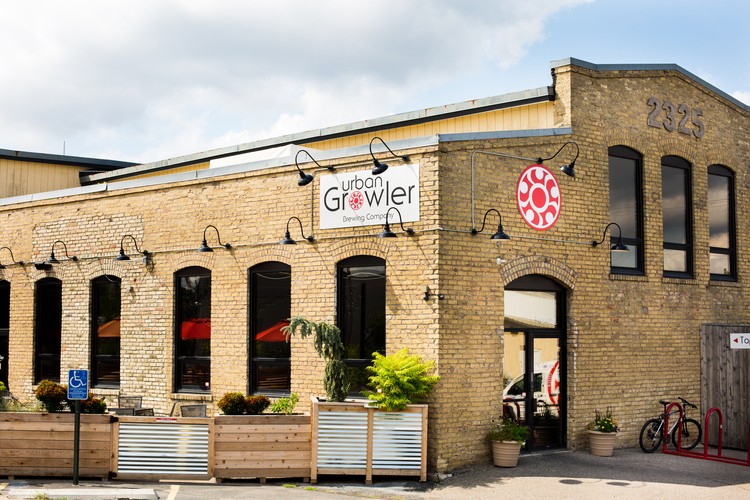During COVID-19, breweries and advocates say Minnesota legislation can make it harder to reel in much-needed revenue.
Limits to the sale of alcohol for breweries and distilleries due to Minnesota law has made it more difficult for the them to stay afloat during the pandemic, some business owners say. As the pandemic continues, they hope for more options to sell their product.
“You can’t look at the news and not be worried,” said Omar Ansari, president of Prospect Park’s Surly Brewing Co. “On the other hand, we know we’re going to get through it, but it’s painful.”
Earlier this month, Gov. Tim Walz signed a bill that lifted restrictions on the sale of alcohol to-go for restaurants and bars. Prior to approval, Minnesota Sen. Kari Dziedzic, who represents both northeast and southeast Minneapolis and other areas, proposed an amendment that would give liquor-centered establishments more options. For breweries, it would mean being able to sell four and six packs. Distilleries would be able to sell one more bottle of liquor.
The proposal would have allowed breweries and distilleries the ability to turn out more product without needing to dispose of liquor, Dziedzic said. Under normal circumstances, Minnesota law states that breweries can only sell crowlers or growlers to-go for consumers, and distilleries can sell only one bottle of liquor per customer.
Dziedzic later withdrew the amendment, after discussion, to allow the original bill to pass. She said she still hopes for a compromise in the near future that works for these businesses and policymakers.
Physical cans and bottles to make crowlers and growlers are running out of stock nationwide, said Lauren Bennett McGinty, executive director of the Minnesota Craft Brewers Guild, which advocates for breweries. While many breweries have turned to curbside pickup and delivery, having a variety of options could be helpful, she said.
“Most breweries in the state of Minnesota rely on foot traffic in their taprooms to sell beer,” Bennett McGinty said. “If breweries could do a four and a six pack out their front door, it would help significantly.”
During her explanation for the amendment, Dziedzic said Northeast and Southeast were part of the original liquor district in Minneapolis. The area is currently home to more than ten taprooms, four distilleries and three brewpubs, she said.
“They are a huge part of that economy that has helped revitalize some neighborhoods. And now, it’s the fabric of a neighborhood, and we want to see these small businesses stay in business and continue to thrive,” Dziedzic said. “It’s just like throwing them a lifeline.”
An April 26 guild report found that, of the 77 members who responded to its survey, 54% — about 41 breweries and brewpubs — said they could not last up to three months under current circumstances if the shutdown extends past May 13.
The guild estimates that more than $9 million has been lost in brewery revenue between dumped product, taproom losses and other hits to their income. However, due to the survey’s low response rate, the guild estimates actual lost revenue could be triple that amount at about $27 million.
Deb Loch, master brewer of women-owned Urban Growler Brewing Company in St. Paul, said things have been “brutal” for their business. They furloughed 37 employees and are down over 50% in sales from the same time last year, she said. The brewery’s revenue is now coming solely from selling curbside crowlers and food to customers, and selling cans to liquor stores and restaurants.
Surly, considered too big to sell growlers under state law, has to rely on selling food to-go and cans of beer to liquor stores, Ansari said. His brewery has also had to lay off long-time employees.
“It’s pretty tough,” he said.
After the statewide shutdown is lifted, the outlook for taprooms remains unclear. In the time of social distancing, lower seating capacity will also have an impact on revenue, Loch said.
“We are trying to imagine the new normal, and what changes we need to make to make sure [that] everyone feels safe to enjoy our food and beer,” Loch said in an email to the Minnesota Daily.
Ansari said while the future is uncertain, he is just waiting for the chance to open back up again.
“I look forward to drinking a beer out in the beer garden with a sun shining here, whenever that day is going to be,” he said.








